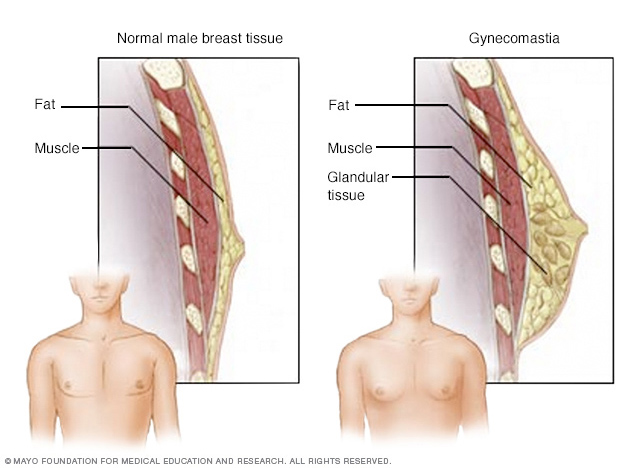
Gynecomastia surgery
The term gynecomastia refers to male breasts becoming enlarged. Here are the condition’s different causes depending on the age to know if gynecomastia surgery can be useful.
Teenagers
At the age of puberty, it is not uncommon for boys to develop gynecomastia, which can enlarge one breast more than the other. Breast tissues enlargement at that age is usually the result of puberty related hormonal changes, which is why teenage gynecomastia is particular. This type of gynecomastia usually resolves in six months to a year.
In rare instances, gynecomastia is caused by testicle cancer, one of the symptoms being abnormal hormone production.
Adults
In most cases, gynecomastia isn’t caused by a condition. Here is a list of potential causes and known risk factors :
- Anything causing the testicles to produce less testosterone.
- Anabolic steroid use, which contribute to gynecomastia by diminishing testicle size and function.
- Certain medications and alcohol.
- Certain natural products such as tea tree oil, ginseng, lavender and soybean.
- Conditions such as diabetes, cirrhosis, renal and heart failure. In general, these conditions are diagnosed before gynecomastia occurs.
- Increased levels of prolactin.
How to treat
While confirming the gynecomastia diagnosis is necessary in teenage boys, treatment is not necessary. However, if treating is considered, a few medications might be considered by the doctor to help with the condition. If gynecomastia persists longer than a year, the mammary gland is probably not going to shrink with medication. Surgery can be then be considered depending on the physical and psychological repercussions of enlarged breasts.
In most adult gynecomastia cases, treatment is not necessary either. If a certain medication is causing the condition, the patient and his doctor have to determine if an alternative medication can be used or if the medical treatment can be stopped. Like teenage gynecomastia, if the condition persists longer than a year, medication isn’t likely to offer improvements and surgery becomes the better option.





